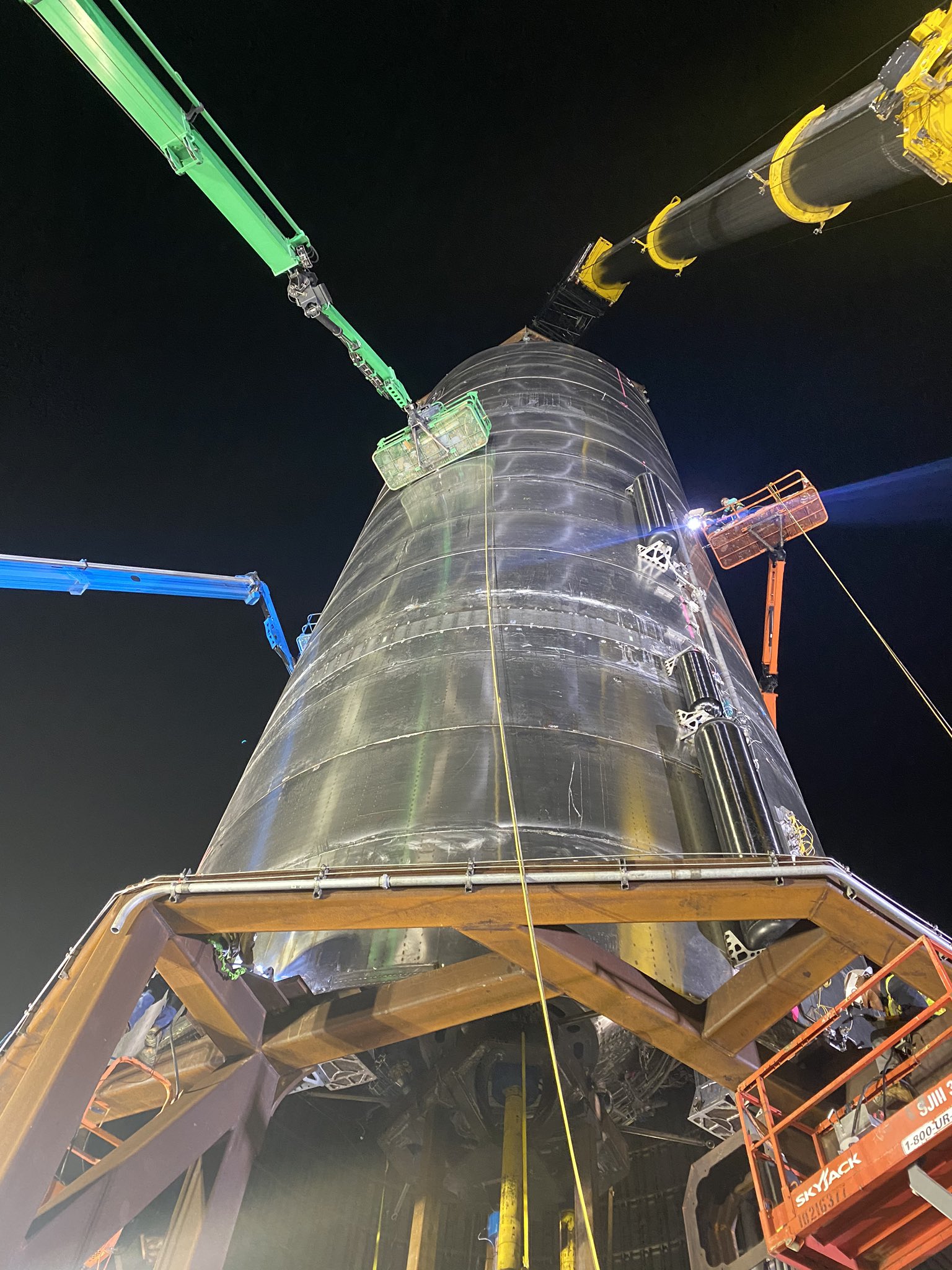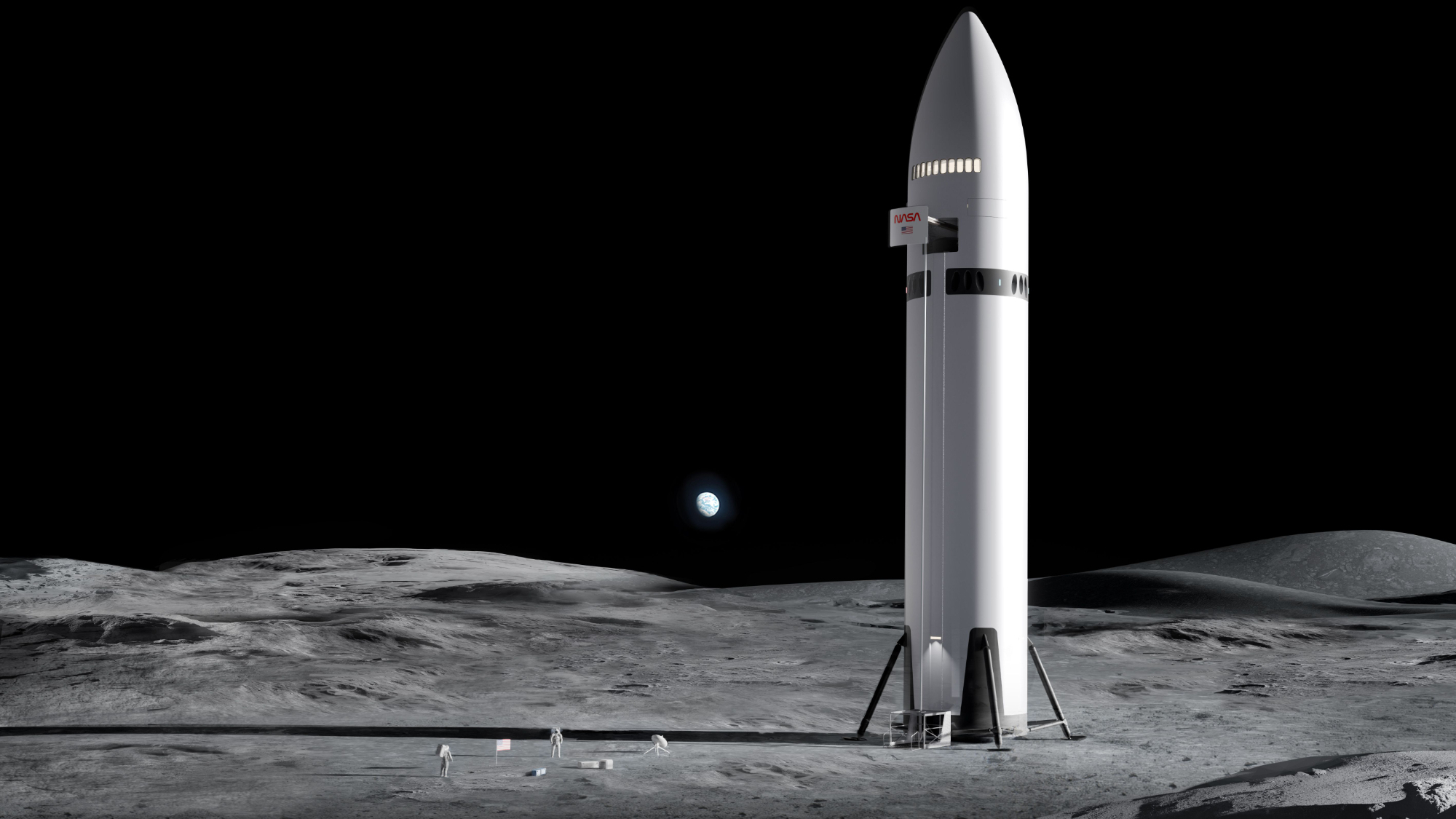SpaceX makes Starship progress, despite test flight delays, Elon Musk says: Report

Breaking space news, the latest updates on rocket launches, skywatching events and more!
You are now subscribed
Your newsletter sign-up was successful
Want to add more newsletters?

Delivered daily
Daily Newsletter
Breaking space news, the latest updates on rocket launches, skywatching events and more!

Once a month
Watch This Space
Sign up to our monthly entertainment newsletter to keep up with all our coverage of the latest sci-fi and space movies, tv shows, games and books.

Once a week
Night Sky This Week
Discover this week's must-see night sky events, moon phases, and stunning astrophotos. Sign up for our skywatching newsletter and explore the universe with us!

Twice a month
Strange New Words
Space.com's Sci-Fi Reader's Club. Read a sci-fi short story every month and join a virtual community of fellow science fiction fans!
SpaceX is "really making progress" with Starship production despite test flight delays, the company's CEO Elon Musk said Monday (Aug. 31), according to Space News.
"We're making good progress. The thing that we're really making progress on with Starship is the production system … A year ago there was almost nothing there and now we've got quite a lot of production capability," Musk said, referring to the company's expanding facilities at its Boca Chica campus in South Texas, according to Space News. Musk shared these updates yesterday during the Humans to Mars Summit, which is conducted by the advocacy group Explore Mars.
SpaceX intends for Starship, the company's reusable super heavy-lift launch vehicle, to one day carry cargo and human passengers to far-off destinations like the moon and Mars. They have so far released a number of Starship prototypes but so far, only one of these prototypes has flown.
Video: How SpaceX's Starship will launch into orbit
Related: SpaceX's Starship and Super Heavy Rocket in pictures
On Aug. 4, SpaceX's prototype SN5 successfully completed a "hop" test, flying to an altitude of 492 feet (150 meters) and landing on another pad. However, the company's four previous prototypes were all destroyed in ground tests and its sixth prototype, SN6, never completed a hop test, after the event was scrubbed Aug. 30 for reasons not disclosed.
Now, as Musk announced during the summit, SpaceX is beginning construction on "booster prototype one," the Super Heavy first stage of the system. He also shared that he expects Starship to make its first uncrewed orbital flight test "probably next year," according to Space News. However, he didn't specify if this orbital test would fly just the Starship vehicle or with the addition of this new booster.
Breaking space news, the latest updates on rocket launches, skywatching events and more!
"I hope we do a lot of flights. The first ones might not work," Musk said. "This is uncharted territory. Nobody's ever made a fully reusable orbital rocket."
This announcement follows some similar sentiments from Musk about Starship's timeline. In September 2019, Musk announced at an event at the company's Boca Chica facilities that the first Starship prototype, Mark 1 or Mk1, would reach an altitude of 12.4 miles (20 km) within one to two months.
"I think we want to try to reach orbit in less than six months," he said at the September event, adding that this timeline would remain true to "within a few months." However, the prototype experienced an anomaly during a cryogenic pressure test Nov. 20 and burst.
Email Chelsea Gohd at cgohd@space.com or follow her on Twitter @chelsea_gohd. Follow us on Twitter @Spacedotcom and on Facebook.

Chelsea “Foxanne” Gohd joined Space.com in 2018 and is now a Senior Writer, writing about everything from climate change to planetary science and human spaceflight in both articles and on-camera in videos. With a degree in Public Health and biological sciences, Chelsea has written and worked for institutions including the American Museum of Natural History, Scientific American, Discover Magazine Blog, Astronomy Magazine and Live Science. When not writing, editing or filming something space-y, Chelsea "Foxanne" Gohd is writing music and performing as Foxanne, even launching a song to space in 2021 with Inspiration4. You can follow her on Twitter @chelsea_gohd and @foxannemusic.

